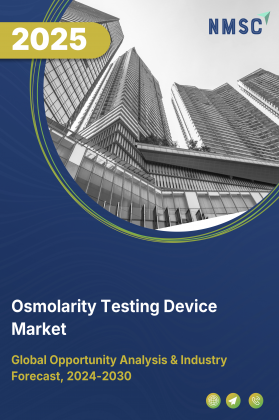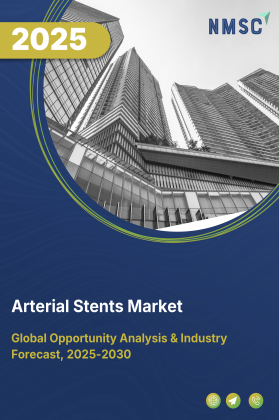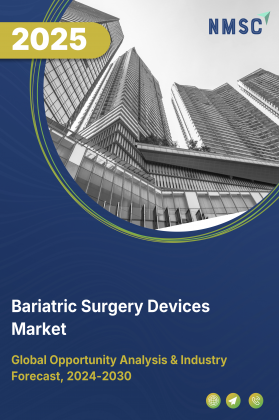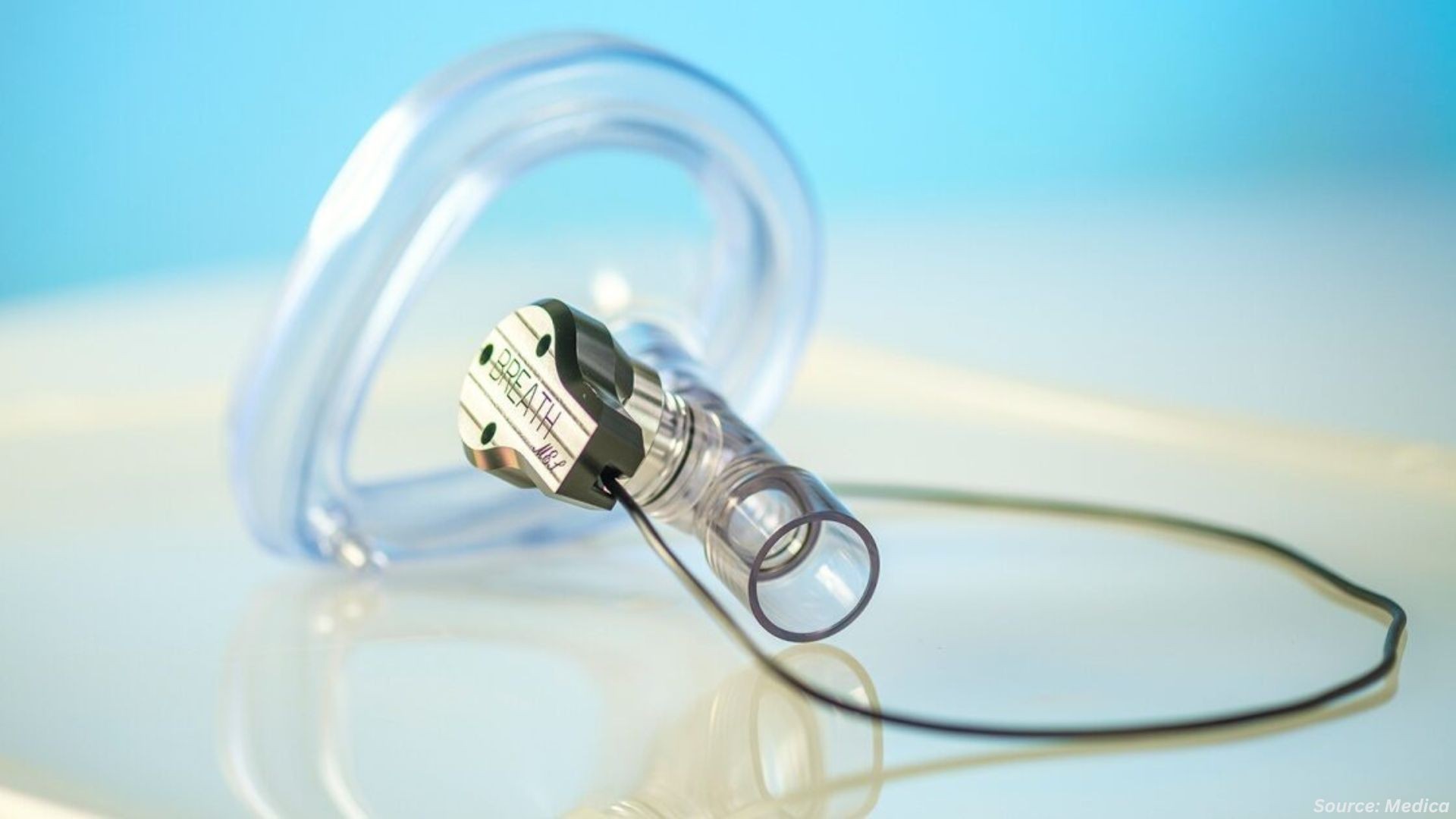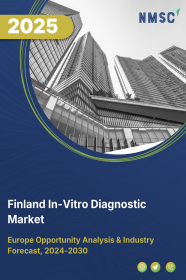
Finland In-Vitro Diagnostic Market by Product & Service (Reagents & Consumables, Instruments & Devices, and Software & Services), by Technique (Clinical Chemistry, Immunoassays, Molecular Diagnostics, Hematology & Coagulation, and Other), by Testing Site / Channel (Central & Reference Laboratories, Hospital & Physician Labs, and Others), by Application / Disease Area (Infectious Diseases, Oncology, Cardiovascular Health, and Others)– Opportunity Analysis and Industry Forecast, 2024–2030.
Industry: Healthcare | Publish Date: 11-Sep-2025 | No of Pages: 139 | No. of Tables: 104 | No. of Figures: 69 | Format: PDF | Report Code : HC2353
Finland In-Vitro Diagnostics Market Overview
The Finland In-Vitro Diagnostics Market size was valued at USD 440.38 million in 2023, and is predicted to reach USD 686.92 million by 2030, at a CAGR of 6.1% from 2024 to 2030. In-Vitro diagnostics (IVD) refers to a wide range of medical tests conducted on samples of bodily fluids, tissues, or cells outside of the body to diagnose diseases, monitor therapy, and assess overall health conditions. These tests are performed in laboratory settings using various techniques and technologies, including immunoassays, molecular diagnostics, clinical chemistry, hematology, and microbiology.
These tests enable early detection of diseases, allowing for timely intervention and treatment initiation. By providing rapid and accurate results, IVD tests facilitate personalized medicine, guiding tailored treatment approaches based on individual patient characteristics.
Also, in-vitro experiments provide valuable insights into biological systems, enabling scientists and researchers to make significant contributions to fields such as medicine, biotechnology, and pharmacology. They serve as essential tools for understanding fundamental biological processes and developing innovative solutions to address health challenges.
Growing Burden of Chronic Diseases in Finland Fuels IVD Market Growth
Finland’s in-vitro diagnostics market is expanding as chronic diseases place increasing pressure on the national healthcare system. Cardiovascular disorders, cancers, diabetes, and neurodegenerative diseases remain the leading causes of morbidity and mortality, driving the need for advanced diagnostic capabilities. These conditions require frequent monitoring and timely detection, thereby strengthening reliance on laboratory testing and molecular assays.
National screening programs and preventive healthcare policies further stimulate demand for IVD solutions. Large-scale initiatives for cancer screening, cardiovascular risk assessment, and dementia management emphasize the use of precise diagnostic tools. The growing elderly population, combined with the government’s focus on early detection, ensures that demand for high-quality diagnostics will remain a structural driver of market growth.
Strong Medical Equipment Industry Strengthens Finland’s IVD Market
Finland’s position as a leader in health technology exports provides a strong industrial foundation for the IVD market. Medical equipment, including diagnostic instruments, constitutes the largest share of the country’s health technology exports, reflecting both advanced manufacturing capabilities and global competitiveness. This strong industrial base underpins innovation and ensures availability of high-quality diagnostic tools for domestic use.
The prominence of medical technology within Finland’s export portfolio also supports domestic adoption of in-vitro diagnostics. The ecosystem of research organizations, healthcare providers, and technology manufacturers enables faster development and integration of diagnostic solutions. This alignment between industrial strength and healthcare demand creates an environment where IVD technologies can scale efficiently.
High R&D and Regulatory Costs Constrain Market Expansion
Despite growth potential, high costs of research, product development, and regulatory approvals continue to restrain the IVD market in Finland. Developing reliable diagnostic assays requires significant investment in clinical validation, laboratory trials, and technology refinement. These upfront costs create barriers for smaller companies and delay time-to-market for innovative solutions.
Regulatory compliance further adds to the financial burden. Stringent European standards and national approval requirements demand robust evidence of safety and efficacy, extending development timelines and costs. While these regulations ensure quality and patient safety, they also limit the pace at which new technologies can be introduced and commercialized in Finland.
Opportunities in Point-of-Care Testing Accelerate Market Growth
Point-of-care testing (POCT) is emerging as a key growth opportunity within Finland’s IVD market. These decentralized diagnostic tools allow healthcare professionals to conduct rapid testing in primary care centers, pharmacies, and emergency units, reducing reliance on centralized laboratories. POCT solutions provide immediate results for infectious diseases, cardiac biomarkers, and metabolic conditions, enabling faster treatment decisions.
The integration of POCT with digital health records and telehealth services strengthens diagnostic efficiency and accessibility. By complementing centralized laboratory systems, point-of-care testing enhances patient-centered care, particularly in rural and underserved regions. This hybrid model of laboratory and decentralized diagnostics is expected to define the next phase of Finland’s IVD market expansion.
Competitive Landscape
The promising players operating in the Finland in-vitro diagnostics industry include Roche Diagnostics Oy, Abbott Oy, Siemens Healthineers, Danaher Corporation (Beckman Coulter), Thermo Fisher Scientific, Becton, Dickinson and Company, Sysmex Corporation, bioMérieux, Bio-Rad Laboratories, QuidelOrtho Corporation, Qiagen, Hologic, Inc., Diasorin S.p.A., Grifols Nordic AB, Aidian Oy, and others.
Finland In-Vitro Diagnostic Market Key Segments
By Product & Service
-
Reagents & Consumables
-
Clinical Chemistry Reagents
-
Immunoassay Reagents (ELISA/CLIA)
-
Molecular Master Mixes
-
Hematology Controls
-
-
Instruments & Devices
-
Chemistry Analyzers
-
Immunoassay Systems
-
Molecular Thermocyclers/Sequencers
-
Hematology Analyzers
-
POC Devices
-
-
Software & Services
-
LIS, Data Analytics
-
CRO/Testing Services
-
By Technique
-
Clinical Chemistry
-
Metabolites
-
Electrolytes
-
Enzymes
-
-
Immunoassays
-
ELISA / CLIA / CMIA
-
Lateral-flow Rapid Tests
-
Immunofluorescence
-
-
Molecular Diagnostics
-
PCR
-
Isothermal NAAT
-
NGS
-
In-situ Hybridization
-
-
Hematology & Coagulation
-
CBC Analyzers
-
Coagulation Panels
-
-
Microbiology
-
Culture & Sensitivity
-
MALDI-TOF
-
Molecular ID
-
-
Urinalysis & Body Fluids
-
Other Techniques
By Testing Site / Channel
-
Central & Reference Laboratories
-
Hospital & Physician Labs
-
Point-of-Care & Retail
-
Home & Self-Testing
By Application / Disease Area
-
Infectious Diseases
-
Oncology
-
Cardiovascular Health
-
Endocrinology & Diabetes
-
Nephrology
-
Genetic & Prenatal Testing
-
Autoimmune Disorders
-
Drug Monitoring & Toxicology
-
Blood Screening & Typing
-
Other Indications
Key Players
-
Roche Diagnostics Oy
-
Abbott Oy
-
Siemens Healthineers
-
Danaher Corporation (Beckman Coulter)
-
Thermo Fisher Scientific
-
Becton, Dickinson and Company
-
Sysmex Corporation
-
bioMérieux
-
Bio-Rad Laboratories
-
QuidelOrtho Corporation
-
Qiagen
-
Hologic, Inc.
-
Diasorin S.p.A.
-
Grifols Nordic AB
-
Aidian Oy
REPORT SCOPE AND SEGMENTATION:
|
Parameters |
Details |
|
Market Size Value in 2023 |
USD 440.38 million |
|
Revenue Forecast in 2030 |
USD 686.92 million |
|
Value Growth Rate |
CAGR of 6.1% from 2024 to 2030 |
|
Analysis Period |
2023–2030 |
|
Base Year Considered |
2023 |
|
Forecast Period |
2024–2030 |
|
Market Size Estimation |
Million (USD) |
|
Growth Factors |
|
|
Companies Profiled |
15 |
|
Customization Scope |
Free customization (equivalent up to 80 working hours of analysts) after purchase. Addition or alteration to country, regional, and segment scope. |
|
Pricing and Purchase Options |
Avail customized purchase options to meet your exact research needs. |
















 Speak to Our Analyst
Speak to Our Analyst



